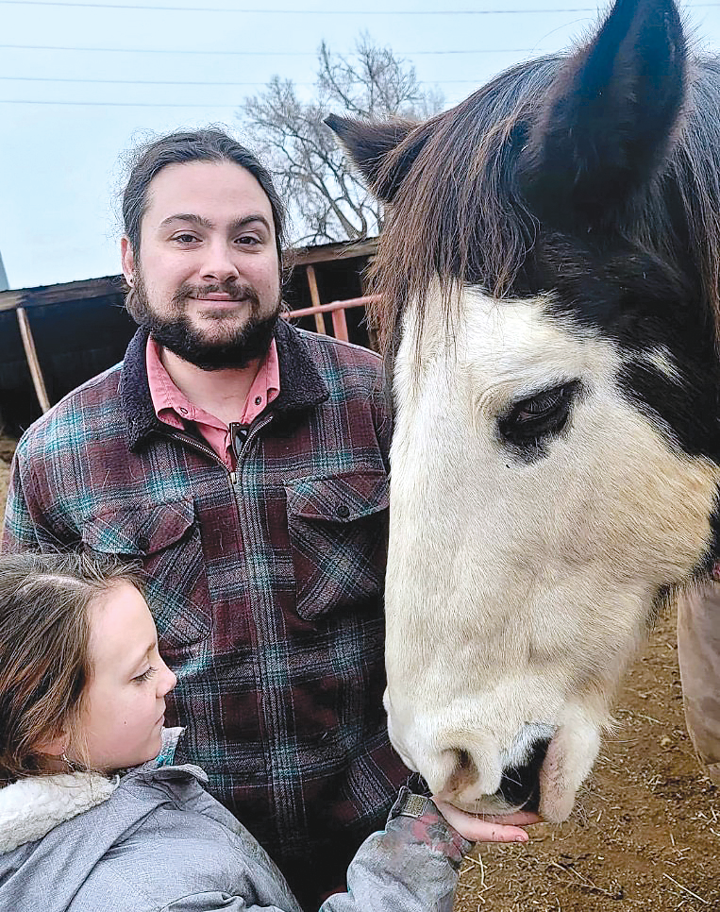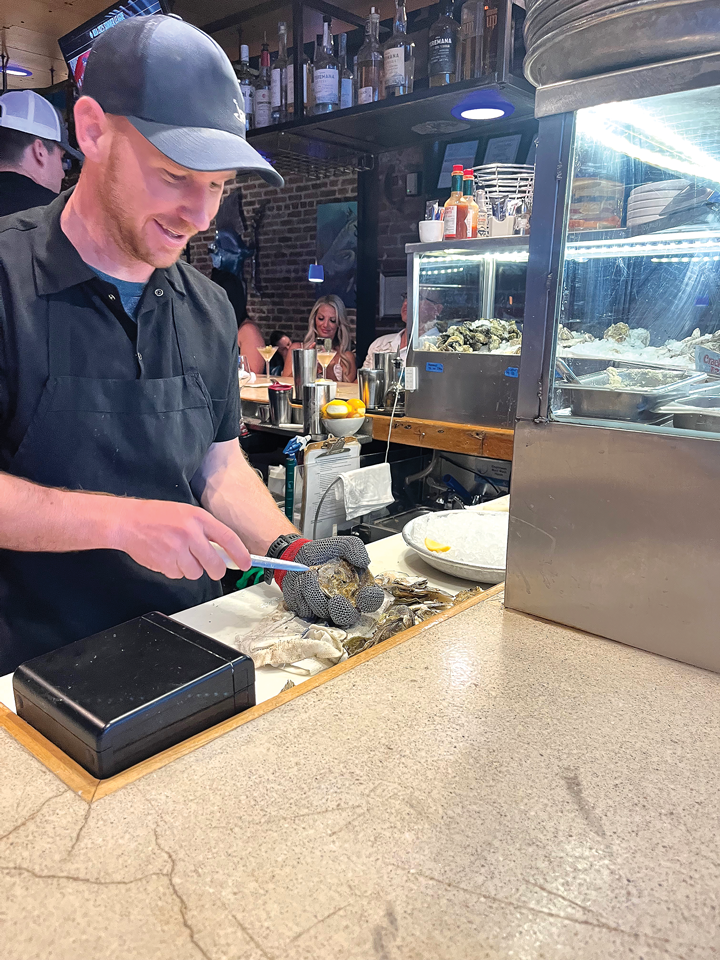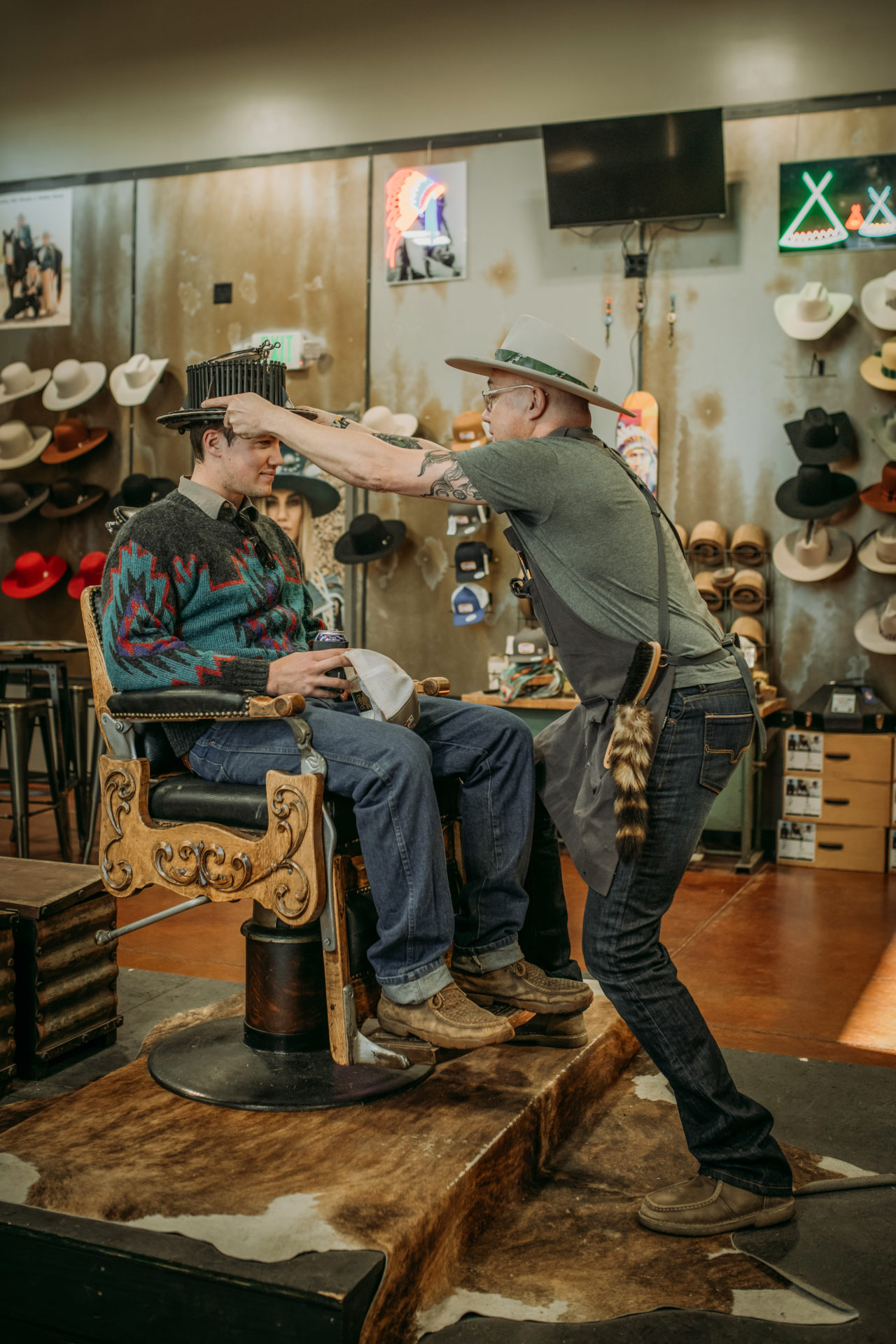Colin Fitzgerald, of Fort Collins, is 32 and works as a Realtor for 8z Real Estate. He finds his leads partly by presenting first-time homebuyer classes at breweries and educational events. His side hustles as a firearm instructor with his company, Fuerza Firearms Training, and bartender for a hotel and Black Tie Events also funnel into his real estate profession.
“I basically run, run, run. I try to do something productive every day,” Fitzgerald says, but he notes that the extra income, up to $1,800 per month, never feels like enough. “I don’t sleep as well as I used to, and it’s starting to take a toll on my body. I feel overwhelmed.”

Colin Fitzgerald
For nearly 75 years, the word “hustle,”a byproduct of rap and hip-hop music, has meant holding extra jobs, according to the New York Times. Today, “side hustles” refer to any work done outside one’s day job.
Side hustles have become more common since the pandemic opened up possibilities for working remotely. The reasons people have them are many, like easing financial pressures, pursuing a paying hobby or having positive social connections. But they can also cause additional stress and increase the chances of burnout, says Kelly Keeler, a therapist who supervises eight clinicians in her Fort Collins practice, Four Pillars Counseling.
Enhancing a primary job
Sometimes, side hustles coalesce into a cohesive purpose. Take Fitzgerald, who finds that his side gigs are beneficial to his main job as a Realtor.
“Bartending is a good way to practice talking to strangers and figuring out how to help a need,” he says. “I try to intertwine my jobs, whether it’s talking about gun laws or, if they’re coming to visit a kid in college, we talk about rental property.”
Ultimately, Fitzgerald wants to build his real estate business and hopes the extra gigs are temporary. To compensate for all his time spent working, he’s building a consistent leisure schedule around his girlfriend and her daughter, weaving open houses with reading groups in the daughter’s third-grade class. They have lunch together and visit Roxy, a horse he trained as a therapy animal.

Catherine Belanger
Another Fort Collins resident, Catherine Belanger, 54, supplements her day job and finds career fulfillment by pouring knowledge gleaned from 30 years of work as a recruiting consultant into her resume service and career coaching side business, Resume Catalyst. She earns about $5,000 a month helping people write resumes and branding them on LinkedIn. Those 10-20 hours a week add to her 30-hour per week day job, but she says it doesn’t feel like work.
“I pinch myself because I get paid to do this,” Belanger says. “It’s not a job; it’s a calling because my undergrad was in psychology, and I spent years counseling others as a social worker before transitioning into business. If I could do the side hustle full time and make the same amount of money as a recruiter, I would.”
Pursuing a passion
Even though Jennifer Crim’s day job teaching orchestra, mariachi band and AP music theory at Longmont High School immerses her in music, it’s her own performances with professional orchestras and a mariachi group, Las Dahlias, that define her.
The annual $5,000 she earns as a violinist with the Fort Collins Symphony and Las Dahlias goes into the family pot, along with her teacher husband’s earnings, to pay bills and support their two elementary-aged children.

Jennifer Crim
Since having kids, Crim, 39, has stopped performing in as many orchestras as possible. Instead, she subs so she can say no if she’s crunched for time.
“I value time with my kids and won’t get this time back,” she says. “I held on to the Fort Collins Symphony because I love the orchestra and the personnel. For me, music is such a passion that I would lose a part of myself if I didn’t perform.”
In addition to her therapy practice, Keeler, 44, is also a songwriter and plays guitar and banjo in a couple of bands, including Mama Lenny and the Remedy, which she helped form in 2011. For Keeler, playing music satisfies a deeper need to socialize with people she wants to be around, and she journals to plumb her emotions for songs. Ultimately, she balances her work as a therapist and musician thanks to a partner who shares the parenting of their two children.
“No one pays me for practicing, but that’s where side gig and self-care combine,” she says. “Playing music is essential to being a good therapist because it helps me remember who I am.”
Navigating burnout
Working long hours and multiple jobs often leads to burnout, which Keeler identifies as emotional overload. She says that if finding meaningful work means sacrificing something that’s a priority—whether that’s time with your children, interpersonal relationships or just quiet time alone sipping coffee—you might be at a tipping point.
“If you grab hold of whatever side hustle you can find because there is financial desperation, it can make you feel wrapped up in the need to scramble,” she says. “I worry about people who are just barely hanging on by their fingernails. It might not help your mental health, though it puts food on the table.”
Bethany Berg, 34, currently works 30 hours a week at a property management company, but during the pandemic, she was able to sustain herself full time doing sci-fi and fantasy animation and tabletop art because companies were receiving additional funding. Now she draws on weekends and evenings, about five hours a week, if she has the energy. She admits she sometimes doesn’t.

Bethany Berg’s artwork
“Burnout is a massive beast for artists to wrestle with,” Berg says. “My art has swapped back and forth between being my main source of income and being a thing on the side because I had to seek employment to get by.”
Crim also feels burnt out at times, both from her performances and the time it takes to prepare for them. As a musician, she knows she has to practice several hours a day, regardless of whether she has an upcoming concert.

Cake made by Lauren Parajon
“It takes a toll on teaching during the day, and my patience is shorter,” she says. “I wish I could be more present at home, more creative as a teacher and a stronger violinist. The challenge is just not feeling enough anywhere.”
Lauren Parajon, 38, started a cake business, Lolo Bakes Cakes, during the pandemic when income from her digital marketing agency, LP Media, took a dive. Over the next four years, she baked nearly 200 cakes. They brought in money, but they devoured her time.
“One weekend, I had seven cakes due on a Saturday. I had to spend my whole week baking, made a disaster of the kitchen and the cleanup was huge. I was totally burned out because I couldn’t go out on Saturday nights, and our kids’ soccer games were on Saturday mornings and I was neglecting them.”
Her media business has ramped up again, and now she makes two cakes a month. She looks forward to them rather than dreading them.
Life changes
Keeler finds that many people are happy to choose gig work despite losing the safety of a regular paycheck. The tradeoff is the freedom to set their own schedule.
“We go through different transformations during our lifetimes and find personal satisfaction in doing the right thing to make our life work,” she says. “More people are recognizing that there’s nothing wrong with them not wanting to grind their life away until they retire.”

Nick James
That’s what happened to Nick James, a night mechanic who broke both hands when they got trapped between a piece of steel and a magnet as scrap metal moved across a conveyor belt. He was also a glassblower by trade.
In March, he started working for six delivery apps and drives about 50 hours per week. The $200-400 he earns daily, in addition to his wife’s earnings as a bartender, prevented their family from becoming homeless.
“I used to make fun of people who did this kind of work, but I see the appeal now,” says James, 39. “I feed my two kids, bathe them and read them a story, then I go to work when my wife gets home between midnight and 2 a.m. If one of my kids is sick, I can stay with them and I don’t get in trouble at work.”
James hopes to return to glassblowing and set up a studio down the road, but for now, the app gigs are keeping his family afloat.
Quitting jobs to establish work-life balance is part of the equation, Austin Hannon, 33, believes. After working late nights and weekends in sports communication for eight years, he switched gears and now does communications for the department of Human Dimensions of Natural Resources at Colorado State University. He’s also taken up side hustles coordinating the marketing and operations for the Fort Collins Food Truck Rally during the summer and shucking oysters at Jax Fish House & Oyster Bar one day a week.
The extra $250 Hannon earns per week goes toward paying off his truck and supplements fun money, but he leaves his weekends and most evenings free.

Austin Hannon
“I’m choosing to do these side gigs,” he says. “I enjoy being at the restaurant and catching up with colleagues, and it’s the same with the [food truck] rally. I run into people I know; it’s a social opportunity.”







